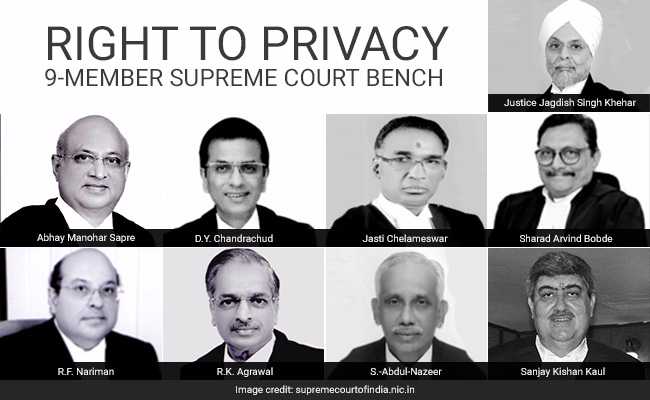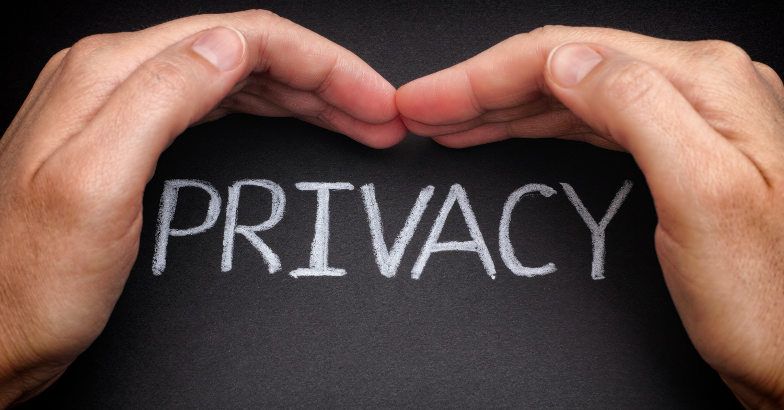Being a Fundamental Right, Right to Privacy is not an Absolute Right
Being a fundamental right, Right to Privacy is not an absolute right
The bench of nine judges concluded the debate over RIGHT TO PRIVACY, by declaring it a fundamental right adding that it’s not an absolute right neither can the court make it due to the article 368 of Indian constitution.
It’s been a week of judgments where the judiciary has given souls to many of the issues by making a suitable end to their proceedings – Triple talaq verdict, right to privacy verdict and also the conviction of the chief of Sacha Sauda Dera.
One of the American presidents once said
All the rights secured to the citizens under the Constitution are worth nothing, and a mere bubble, except guaranteed to them by an independent and virtuous Judiciary.
Proving the above saying absolute, Indian Judiciary has embraced the existence of a privacy right in Indian constitution by a unanimous verdict made by the nine-judge constitution bench of the supreme court on Thursday.
Back in the year 2012, former Karnataka HC judge, KS Puttaswamy, now 91, filed the PIL questioning the Aadhaar Scheme, saying it violates the fundamental rights of liberty and privacy. There were some basic aspects of the petition, they are-

* Eight-judge bench ruled in the MP Sharma case (1954) there was no privacy right under a specific Article, but it did not extinguish general fundamental privacy right.
* A six-judge bench in Kharak Singh case (1962) that privacy right is not fundamental, no longer good law.
* In an unbroken chain of judgments, starting from Gobind vs State of Madhya Pradesh and leading up to National Legal Services Authority (NALSA) vs. Union of India (on the rights of transgender persons), the Supreme Court has recognized the fundamental privacy right.
* Privacy is associated with Article 14, Article 19, and Article 21 (right to liberty and equality).
* The principle of dignity is related to the privacy right and clearly dignity is a part of preamble also the part of the basic structure of Indian Constitution.

The petitions raised a big question that is right to privacy is fundamental or not? Besides this, the judiciary defined privacy as a right which includes the protection of personal intimacies, sanctity of family life, marriage and home. Justice of India said that privacy should be left alone but cannot be absolutely right but can be any invasion. Privacy clearly safeguards the serenity of human life and affairs taking place among them.
Legal eagles Gopal Subramanium, Soli Sorabjee and Shyam Divan appearing for the petitioners strongly argued for a declaration of ‘Right To Privacy’ as a fundamental right. The proceedings went on and the verdict came out by respecting the privacy as a fundamental right which is not specifically mentioned but does exist in articles 14, 19 and 21 laying the fundamental rights of the citizens of India.
Conclusion
Pondering about the Aadhaar scheme, the Centre submitted that the right to life of millions of poor in the country through food and shelter measures was far more important than privacy concerns raised by the upper-class people of the society.
In spite of the fact that judiciary is concerned about the issue, it’s obvious and a factual thing that the Constitution doesn’t allow the Supreme Court to make any kind of amendments in the acts or laws of the constitution rather the power vests with the legislative assembly and parliament. Thus the court has also highlighted that the parliament should make the required amendments to the Constitution so that the right to privacy can be preserved along with the backing to adhaar.
Try our Debt Resolution solutions today Request a Demo